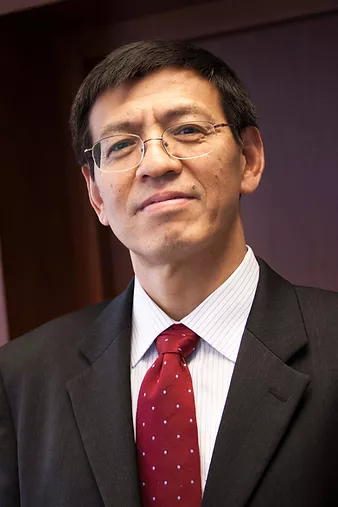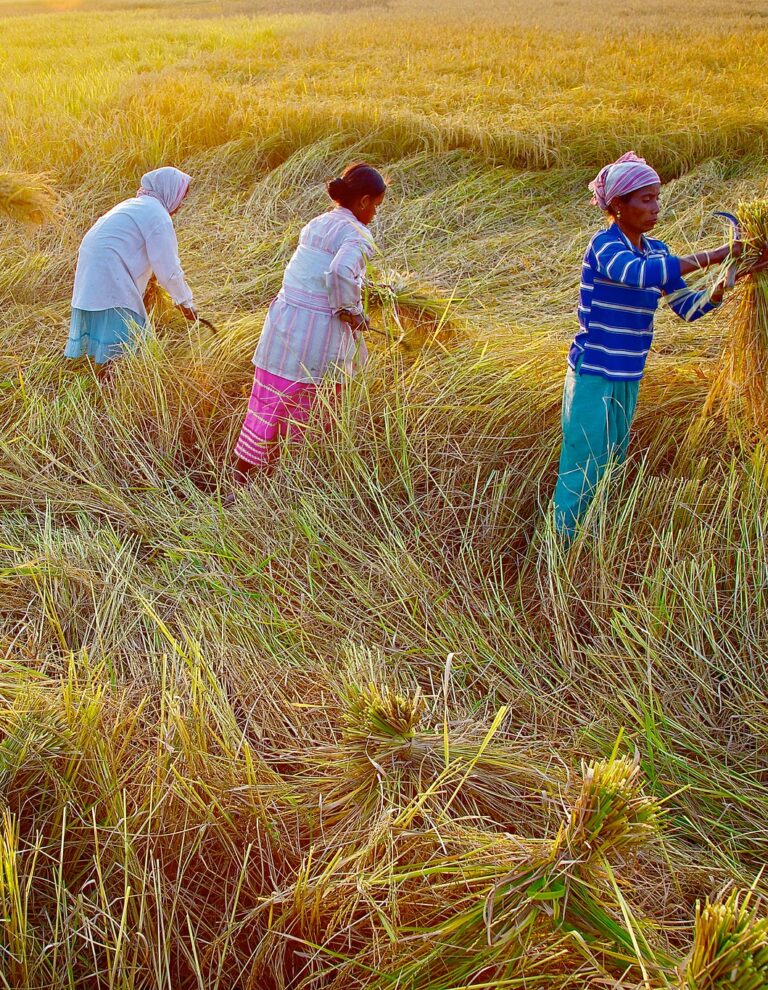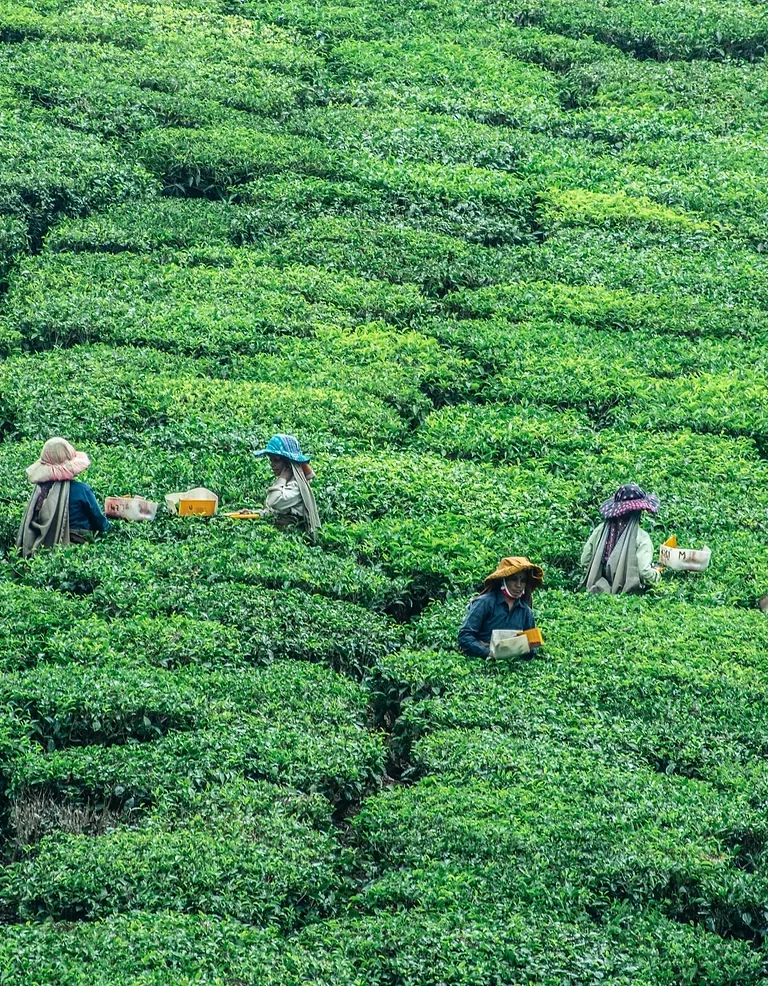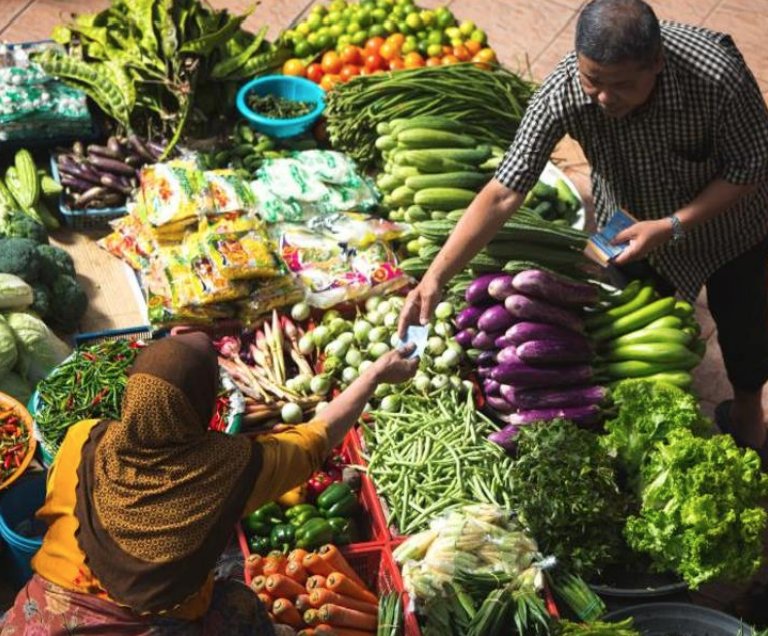
Dr. Shenggen Fan is an FSEC Commissioner and Chair Professor at the College of Economics and Management at China Agricultural University (CAU). He is not only an author of widely cited journal articles and books but also a global leader in agricultural economics and food policies. Prior to joining CAU, Dr. Fan served as Director-General of the International Food Policy Research Institute (IFPRI) from 2009 to 2019. He was a member, vice-chair and chair of the food and nutrition council of the World Economic Forum; was appointed by former UN Secretary-General Ban Ki-moon as a member of the Lead Group for the Scaling Up Nutrition (SUN) Movement; and is an advisor to many national governments on agriculture, food security and nutrition.
What does ‘food system transformation’ mean to you?
I grew up in a small village in the Jiangsu province in China. During the first 15 years of my life (1962-1977), I experienced poverty, hunger and malnutrition. Then, life suddenly began to change dramatically due to the introduction of policy reforms in China at the end of the 1970s. Poverty was gone, malnutrition disappeared, and the living standard of villagers improved remarkably. This personal experience gives me confidence that things can change if we adopt the right set of policies. Of course, new challenges have emerged since then, including the degradation of natural resources and the environment and increased income gaps – even within the same village. I believe the image of my village is a mirror into the world to some extent.
Despite progress being made in the past, the global food system is now facing major interconnected challenges, including climate change, natural resource depletion, biodiversity loss, malnutrition, food insecurity, inequity and preventable ill-health, all of which are exacerbated by the fragmentation of food systems and policy incoherence. Addressing these challenges requires a transformation of food systems towards a productive, sustainable, resilient, inclusive and nutritious pattern.
How can economists contribute to achieving this transformation?
Economics, at its essence, is the analysis of private and public choice under scarcity. It includes the policies needed to incentivize socially optimal behaviors around healthy consumption and sustainable production of food. Economists can make five key contributions to the analysis of food systems:
- Economists can develop methods and metrics to account for the true cost of food systems. The costs need to be internalized through taxation and regulations, so food prices can reflect the true costs to the environment, climate change and health.
- Economists can identify synergies among efficiency, sustainability, health and social inclusion goals. Many strategies and actions to improve efficiency, for example, may also improve health and inclusiveness. Similarly, economists can help design policies and strategies to minimize trade-offs among different goals.
- Economists can help analyze solutions to policy failures. For example, the subsidies in food and agriculture distort both domestic and global food markets, lead to overuse of water, land and chemical inputs, increased GHG emissions, and distort resource allocation among foods to the detriment of diverse diets and health. Public funds could be redirected towards the production and consumption of healthy and sustainable foods such as fruits, vegetables, beans and nuts, through R&D investment and value chain development.
- Economists can help improve the understanding of political decision-making processes. It is important to understand the incentives of interest groups within entire food systems, including those emerging from technological advances (for example, genetically modified or edited crops and biotechnology, and regenerative agriculture), multinational corporations, the food retail sector and environmental groups.
- Finally, economists can provide a diverse and rigorous toolkit for understanding choice under scarcity and the trade-offs between different system objectives, including microeconomic analyses of consumer and producer behaviors, meso-level analyses of markets and value chains, and macro-level modelling of entire economies and the global food system as a whole. Yet, economists should not work alone or in silos. It is more important now than ever to work together across disciplines including environmental management, climate, nutrition and health.
What role can Chinese food systems play in achieving the global food systems agenda?
China’s food systems are facing similar challenges to those in other countries that threaten both human and planetary health. Fortunately, the government has recently made several important commitments on health, the environment and climate change, including setting the goal of achieving carbon neutrality by 2060. This gives China a unique opportunity to reshape its food systems to achieve national goals.
Chinese food systems also have global implications as the country is the largest producer, importer and exporter of many food commodities, it is the biggest greenhouse gas emitter, and it has become the leading R&D investor in food and agricultural systems for both public and private sectors. It is a key player in global development issues and actively participates in ‘South-South cooperation’. The country has launched the One Belt and One Road Initiative to strengthen investment cooperation with Asia, Africa and Latin America. The question then is: How can these initiatives help achieve win-win outcomes, particularly in food systems transformation, for both China and recipient countries?
What is the motivation behind the establishment of the Academy of Global Food Economics and Policy (AGFEP) at China Agricultural University? And what are some achievements of AGFEP to date?
Since its establishment in 2020, AGFEP is trying to break traditional disciplinary boundaries to study food, nutrition, health, environmental resources, climate mitigation and adaptation holistically by using the food systems approach. The mission is to provide high-quality data and research, as well as evidence-based policy, advocacy and capacity strengthening at all levels. It is my sincere hope that AGFEP will serve as a two-way bridge between international food systems research and the national food systems transformation in China.
Despite the challenges we face due to COVID-19, we have made good progress in generating research-based evidence to advise the Chinese government, UN agencies, the private sector, and other relevant stakeholders to take actions to transform food systems for both human and planetary health. Some of the highlights include the publication of the 2021 China and Global Food Policy Report, providing support to the 2021 UN Food Systems Summit, and publishing in top journals on food systems transformation. Looking forward to 2022, we will continue to build a strong team with numerous young talents trained domestically and abroad. We will publish the 2022 China and Global Food Policy Report on repositioning agricultural support, scale-up household surveys in both rural and urban areas in China, and launch a mutual learning network on policy between China and Africa.
For more information on the five contributions economists can make to the analysis of food systems, read Shenggen’s latest article on Nature Food here.




